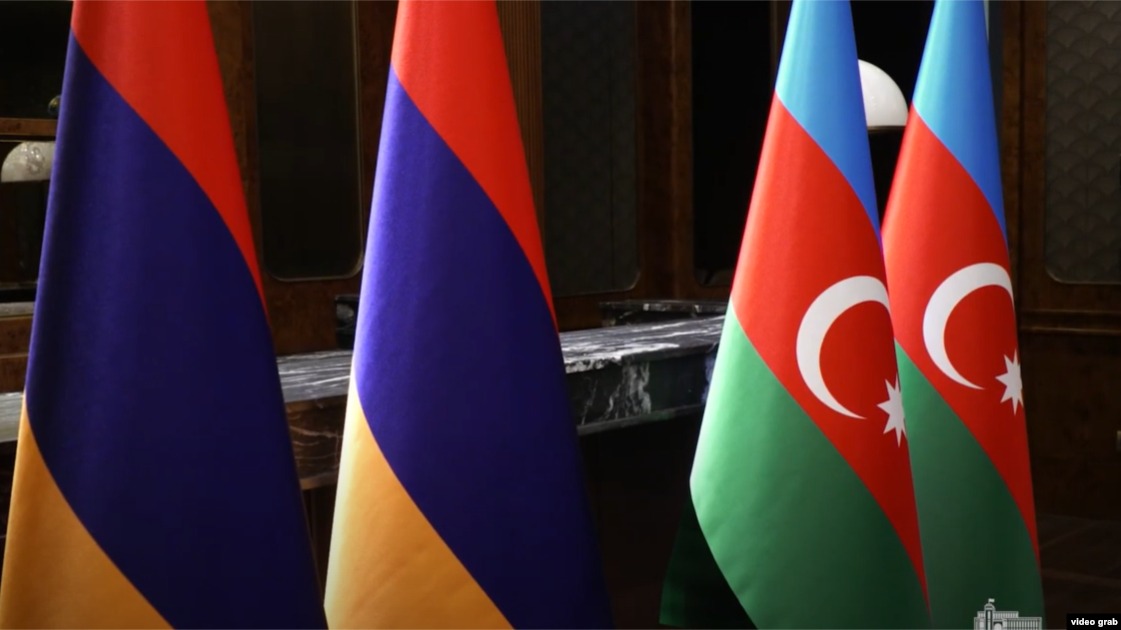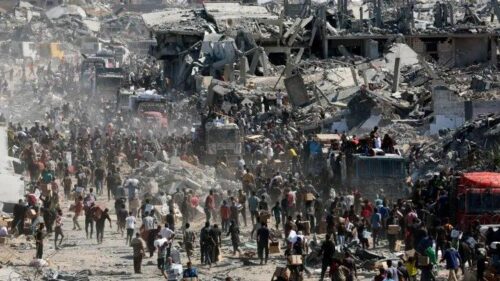
Armenia-Azerbaijan agreement invites further aggression and will lead to more hostility and suffering, writes Providence
Professors from a number of prominent U.S. universities and schools have published a joint article in the Providence magazine, addressing the text of the peace agreement between Armenia and Azerbaijan. As noted, in September 2020, Azerbaijan unleashed a brutal war against the ethnic Armenians of Artsakh, a self-governing area for almost 30 years since the majority of the Armenian-populated region voted for independence from Azerbaijan in December 1991.
After forcing the Pashinyan Administration of Armenia to sign a defeatist agreement on November 9, 2020, Azerbaijan moved to cut off Artsakh, also known as Nagorno-Karabakh, a self-governing Armenian enclave, from the rest of the world for 9 months, reducing supplies of food and medication to zero and causing wide-scale starvation, including severe child malnourishment. This was followed by a military assault launched on September 19-20, 2023, which pushed the remaining 120,000 ethnic Armenians from their ancestral land in what has been characterized as genocide. These refugees have not received reparations and are unable to return home.
On March 14, 2025, the Foreign Ministries of Armenia and Azerbaijan announced an agreement aimed at resolving decades of conflict between the two Caucasus nations. We argue this process was imposed upon Armenia under duress by Azerbaijan and its patrons. This agreement mirrors the 1938 Munich betrayal of Czechoslovakia, which rewarded aggression instead of deterring it. We urge the international community to reject this agreement and oppose its ratification.
“As scholars and practitioners in various fields of public policy, we are deeply committed to promoting peace and stability in the world, including the Caucasus. However, true peace must be grounded in justice, respect for human rights, adherence to international law, and long-term sustainability. It requires not only addressing past wrongs and holding perpetrators accountable but also ensuring that victims of war crimes are treated with dignity, compassion, and respect. In line with UN General Assembly Resolution 60/147, the Basic Principles and Guidelines on the Right to a Remedy and Reparation for Victims of Gross Violations of International Human Rights Law and Serious Violations of International Humanitarian Law, victims of war crimes are entitled to justice mechanisms and prompt reparations. This resolution outlines five forms of reparation: restitution, compensation, rehabilitation, satisfaction, and guarantees of non-repetition.
To this day, Azerbaijan continues to hold numerous prisoners of war (POWs). Attorneys for the detainees confirm that they are kept in harsh conditions and subjected to torture. These violations are well-documented.
The publication states that most troubling is the strategy of appeasement the current Armenian government has been engaged in since the signing of the November 9, 2020, ceasefire. Under pressure from Azerbaijan, Turkey, and Russia, the Armenian government agreed to amend its constitution, altering language that Azerbaijan perceives as threatening to its territorial integrity, an argument repeatedly invoked only to legitimize aggression. Armenia has also agreed to drop issues related to the recognition of the Armenian Genocide, the unlawful detention of hostages and POWs, and the safe return of the indigenous Armenian population of Artsakh (also called Nagorno Karabakh) to their ancestral land. The government has also agreed to relinquish legal disputes and claims against Azerbaijan in international courts, including ongoing cases of human rights violations and war crimes. Furthermore, Armenia has consented to the disbandment of the OSCE Minsk Group, which had been monitoring the Nagorno-Karabakh conflict since 1994.
In return, Azerbaijan’s President Aliyev continues to promote racist policies and hateful rhetoric against Armenians, undermining the very principles of peace and respect that should guide this process, all while engaged in an increase in defense spending approximately seven to one compared to Armenia. He continues to hold dozens of Armenian POWs, turning their sham trial in Baku into an anti-Armenian propaganda tool. Finally, Azerbaijan still occupies significant territory of Armenia proper.
“It is important to note that the current Armenian government did not campaign on signing a peace agreement in 2021 and, therefore, lacks the legitimacy to do so, especially with an approval rating of just 11 percent. Western democracies that care about Armenia and peace in the Caucasus must stand with the people of Armenia rather than allow Azerbaijan to secure a new capitulation from the embattled Pashinyan government, which is willing to sacrifice Armenia’s interests to maintain power. In its current form, the agreement invites further aggression and will lead to more hostility, war, and suffering,” reads the article.


